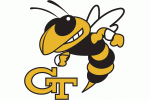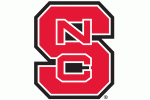When I created SCACCHoops.com it was about ACC fantasy basketball. A group of friends and I tracked our league's standings in an excel spreadsheet for years. When I was in school getting my Computer Science degree I took a class on SQL, or structured query language, which basically taught me about databases and queries. In this particular class, the professor was a big-time college basketball fan that used basketball examples seemingly every day. This was my inspiration for the site you see here today.
Did you know Game Sim has picked nearly 80% of winners in the SCACCHoops.com ACC game picking contest? Not bad for a computer right? I get asked quite a bit about what makes up Game Sim and how it works. The thing is, its not that complex.
One thing that SCACCHoops.com has allowed me to do is collect data. Starting in 2004 I manually entered stats for ACC games to keep my fantasy league running. Yes, that means: player X had 5 points, tab, 2 assists, tab 1 rebound and so on. Eventually, I automated the process which led me into my next venture.
This guy named Ken Pomeroy was doing some really cool analysis called tempo-based stats. It seemed so simple too, but I was curious why sites like ESPN and CBS Sports weren't introducing it to their users. At the time people would wait until after the game and do their calculations and write up an article explaining detailing numbers like offensive efficiency. That was my inspiration for live tempo-based stats. In adding the live tempo-based stats I started to pull in even more meaningful data into my database.
Back in March of 2010 I was doing the same thing I do every March, getting excited for baseball. I've coached baseball ever sense I realized I wasn't good enough to play it. I suffered from a common baseball ailment called undersized right hand pitcher disease. At 5'10" I was a right hand pitcher and could hit 80 mph and had decent offspeed stuff. That was good enough to get me opportunities to play in college, but I was realistic. Unless I learned to throw left-handed or added 9-10 mph to my fastball, I didn't have a future. Instead I went back to my high school and joined the coaching staff for my high school baseball team while I was in college. Apparently I did something right as I earned the opportunity to be an assistant coach on a U15 team from North Carolina that went on to finish 4th in the nation. I've coached ever since because baseball is a passion of mine.
In 2010 I was reading a Chicago Cubs blog where someone had created the ability to simulate a baseball game. The simuation went pitch-by-pitch using percentages from both the pitcher and hitter to determine the outcome of at-bats and eventually the game. All you needed was each player's stats to determine the outcome of game. See where I'm going with this?
When I have an idea and I'm inspired, coding is so much fun. In this case, coding the college basketball game sim was a blast. I knew I had the data, after all I had collected data over the life of the site and now I finally get to put it to work.
Two days. It took just two days to create the first version of the game simulator. Read the data for Team 1, read the data for Team 2, and simulate possession by possession. The most fascinating thing was that it just worked. I've done a few tweaks here and there since the creation of game sim, mainly tieing in other factors that I didn't consider when I started, but it has worked from day one.
After it was completed in mid-march of 2010 I tested it out by simulating the NCAA tournament games. It predicted that Duke would win the national championship, and at the time it seemed crazy. After eye-balling the results I started to publish predictions on Twitter starting with the Great 8. Game Sim nailed the prediction I posted for all 4 games on that Friday night. As the 2010 tournament played out, it turned out that Game Sim picked Duke to win it when virtually no one else did.
Game Sim relies on data to help it more accurately play out games. The more data it has on a team, the better it understand that team's profile. As such, the game sim is not available until January 1st each season. My expectation was that the game sim predictions get more accurate as the season goes along, but I've never proved it.
A few weeks back, @austin_johnson asked me if I've ever tracked game sim vs the spread. I hadn't since I'm not one to gamble, but it did help me realize that it would be a good way to measure the success of my creation. So, starting on February 11th, I started to track the success of Game Sim's picks against the Vegas odds. That first day game sim beat the spread just 23 of 47 times, not exactly a great start. The next 3 days were all around 50% in beating the spread but on February 15th things turned around. Game Sim beat the spread 18 of 23 times. For the week (2/11-2/17), Game Sim beat the spread 57% of the time. As one follower responded when I posted those results on twitter, that is what the gambling world calls profitable. The following week (2/18-2/24) it beat the spread 58% of the time. This week so far it has beat the spread 64% of the time.
The good news is that Game Sim seems to be getting smarter as the season progresses. The even better news is that its March. I'm hoping the Game Simulator will be able to pull off what it did in 2010 and pick the national champional once again.
Note: I'm not advocating anyone place bets based on Game Sim's predictions. I wouldn't with my own money and I'm recommending that you shouldn't either. It has been successful picking games though and I used the numbers above to show its success.



















